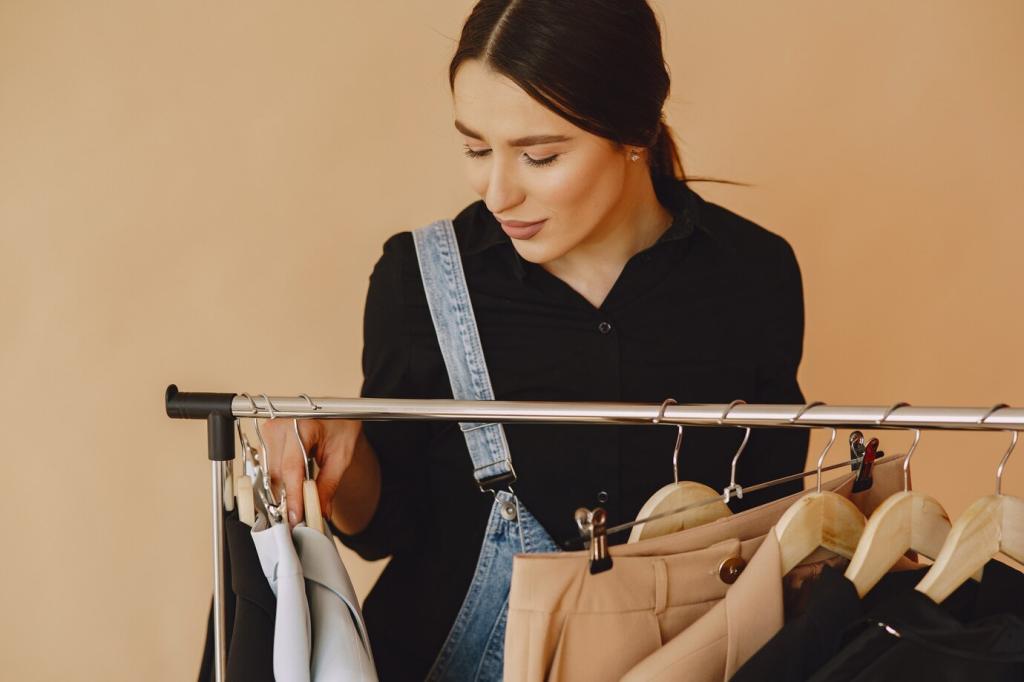Ethical Fashion Brands Leading the Way
Chosen theme: Ethical Fashion Brands Leading the Way. Step into a world where style is matched by conscience, leaders share their receipts, and every stitch carries dignity. Explore inspiring stories, practical insights, and ways you can support the brands reshaping fashion’s future today.

What Makes a Brand Truly Ethical
Leading brands build ethics into their calendar, not just their marketing. They publish supplier lists, negotiate long-term contracts, and sit at the table with makers. If you admire this approach, tell us which policies you want decoded in future posts, and subscribe for deeper dives.
What Makes a Brand Truly Ethical
Real impact is measurable and comparable. Think transparent wage data, verified fiber sources, and third-party audits you can access without a password. If a claim sounds vague, it probably is. Comment with examples you’ve questioned, and we’ll investigate how to spot the signals.
Radical Transparency: From Farm to Hanger
QR codes on swing tags, digital product passports, and batch-level lot numbers are becoming standard among leaders. They let you see farm locations, fiber types, and factory audit dates. Would a transparency glossary help your shopping? Vote yes or no in the comments and subscribe for updates.


Radical Transparency: From Farm to Hanger
At a cotton collective in Gujarat, a brand manager learned more in one morning than in a year of boardrooms. Farmers explained rain shifts and soil stress, and together they planned regenerative trials. Stories like this show leadership is listening. Have a field story? We’d love to hear it.
People First: Fair Pay, Safety, and Respect
Living Wages, Not Bare Minimums
Leaders calculate living wages using local data, then publish progress by facility. They avoid risky purchasing practices like last-minute order changes and pay on time. If a brand you love posted wage gaps tomorrow, would it change your loyalty? Tell us—and invite them to share that data.
Healthy Spaces, Happier Teams
Safety isn’t just fire doors; it’s ventilation, ergonomic benches, and predictable schedules. One seamstress told me her pay rose after a brand funded training that increased skill variety. Ethical design lifts people. Share workplace improvements you’d want normalized across global factories.
Community Investment That Lasts
Standout brands co-create childcare programs, scholarship funds, and transit stipends with worker committees. These investments reduce turnover and strengthen families. What community initiatives would you prioritize if you ran a label? Comment your top three and inspire a future case study.
Materials That Respect the Planet
01
Organic cotton, regenerative wool, and responsibly sourced linen improve soil health and biodiversity. Some brands pre-finance seed and guarantee purchase volumes to protect farmers from climate volatility. Which fiber do you want us to unpack next—linen, hemp, or regenerative wool? Cast your vote below.
02
Plant-based leathers from mycelium, closed-loop lyocell, and recycled yarns are maturing fast. Leaders pilot early, share failures, and publish lifecycle assessments. Curious about durability trade-offs? Subscribe for our test diaries, where we wear, wash, and track performance beyond marketing claims.
03
Textile dyeing drives major water stress in several regions. Progressive brands adopt dope-dyed techniques, natural pigments, and wastewater recycling. Some track chemical inputs with bluesign-level standards. Tell us which dye innovations you want decoded, and we’ll build a practical shopper checklist.
Designing for Circularity and Longevity
Bar-tacked stress points, spare buttons, and modular panels make fixes simple. Some brands publish free repair manuals and host mending nights. Would you join a local repair club if we mapped one near you? Comment your city, and invite a friend who loves needle and thread.
Certifications That Actually Mean Something
Look for GOTS, Fair Trade, bluesign, and credible B Corp scores reviewed over time. Certifications are not perfection, but they raise the floor and expose gaps. Which labels confuse you most? Drop them below, and we’ll create a plain-English guide you can bookmark.
KPIs You Can Track at Home
Set personal metrics: percentage of ethical purchases, repair rate, and items resold or donated responsibly. Brands measure Scope emissions; you can track cost-per-wear. Want a monthly tracker template? Subscribe, and we’ll send a printable that turns good intentions into steady progress.
Join Our Accountability Circle
Every month we spotlight brands publishing wage data, improvement plans, and factory lists. We also call out greenwashing with respect and receipts. Join the circle by subscribing and nominating a brand to review. Together we elevate leaders—and help more labels earn that title.
